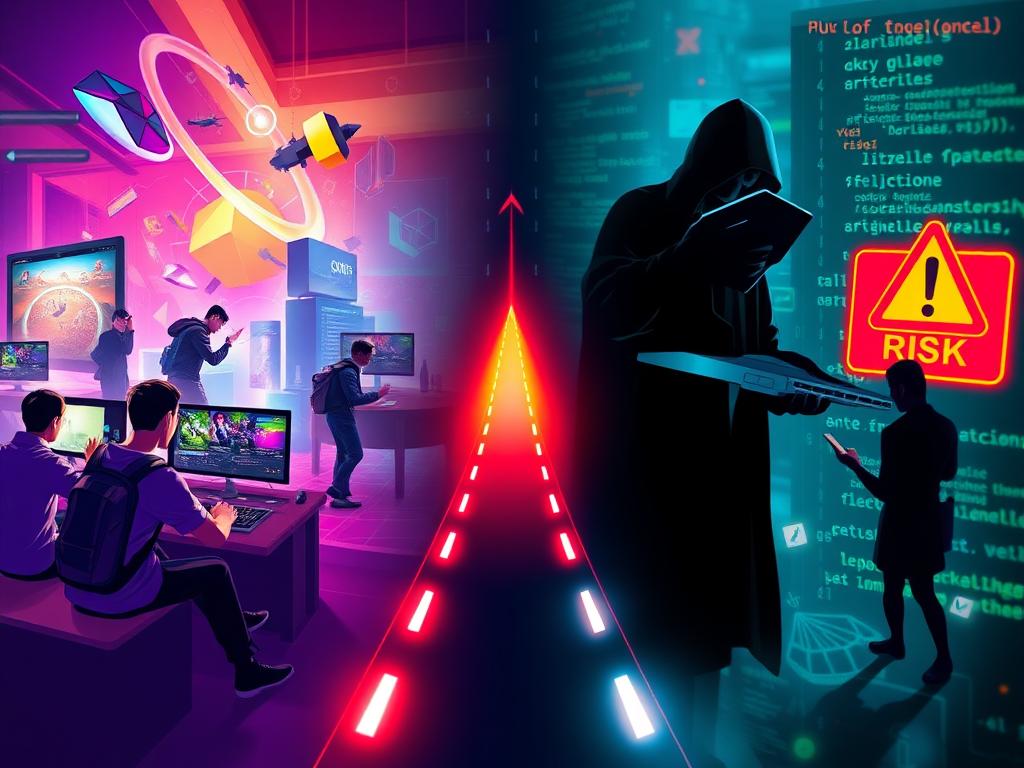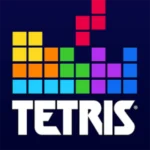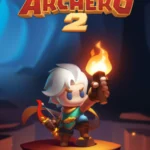Browser Game Mods & Cheats: Navigating the Risk vs. Reward – Unlocking the Digital Frontier
In the sprawling digital cosmos of browser gaming, where countless adventures unfurl within a click, players often seek more than what meets the eye. The desire to transcend limitations, to sculpt reality within a virtual sandbox, gives rise to a potent subculture: browser game mods and cheats. This isn’t merely about gaining an unfair advantage; it’s about pushing the boundaries of what’s possible, challenging the very code that governs these fleeting digital worlds. From enhancing aesthetics to rewriting game mechanics, the pursuit of alteration is a dual-edged sword, offering immense rewards to those bold enough to wield it, yet harboring significant risks for the unwary. This deep dive will dissect the intricate tapestry of browser game modification, unveiling the clandestine methods, the intoxicating allure of power, and the inherent perils that lie beneath the surface, exploring the raw essence of game integrity and the art of online game hacks.
The Allure of Alteration: Why Players Seek Mods & Cheats
The human spirit is inherently driven by curiosity, by the urge to explore, to optimize, to dominate. In the realm of browser games, this manifests as a profound desire to bend the rules, to craft an experience beyond the developers’ initial vision. Why do millions relentlessly search for “browser game mods free” or “best browser game cheats 2025”? The motivations are multifaceted, deeply rooted in the psychology of play.
Escaping the Grind: Efficiency and Expediency
Many browser games are designed with progression loops that demand significant time investment – grinding for resources, waiting for timers, repeating monotonous tasks. For players with limited time or an aversion to repetition, an “unlimited money browser game hack” or a speed-up mod can transform a tedious slog into an exhilarating sprint. It’s about maximizing enjoyment by minimizing the perceived chores, allowing players to jump straight to the rewarding aspects of the game. The desire for instantaneous gratification, a hallmark of the digital age, fuels the demand for shortcuts, enabling players to bypass artificial barriers and unlock content faster.
Unleashing Creativity: Customization and Personal Expression
Beyond mere advantage, a powerful driver for browser game mods is pure creative expression. Imagine altering character models, importing custom textures, or even designing new levels within a browser-based world. While not all browser games support such deep customization, the potential to personalize one’s experience, to leave a unique mark on a shared digital canvas, is immensely appealing. This aspect of game modding reward transforms passive consumption into active creation, turning a game into a dynamic, living entity that reflects the player’s individuality.
Conquering the Unconquerable: Challenge and Domination
For some, the thrill comes from overcoming impossible odds, not through sheer skill, but through sheer ingenuity. Facing a notoriously difficult boss or a seemingly insurmountable leaderboard, the temptation to employ online game hacks becomes irresistible. It’s a primal urge to dominate, to stand atop the digital hierarchy, even if the ascent is paved with altered code. The satisfaction of seeing your name at the top, of effortlessly clearing content that stumps others, taps into a competitive drive that transcends fair play. The very act of finding and implementing a successful browser game exploit list can be a puzzle in itself, a meta-game of digital infiltration.
Exploring the Code: Curiosity and Reverse Engineering
A subset of modders are driven not by gameplay goals, but by an insatiable curiosity about how games are built. They delve into client-side scripts, network packets, and memory states, dissecting the game’s core to understand its vulnerabilities. For these digital alchemists, the reward is the knowledge itself – the understanding of a system’s weaknesses, the thrill of bending abstract logic to their will. This pursuit often borders on ethical gray areas, but the underlying motivation is a profound intellectual engagement with the technology. This exploration often uncovers the most potent avenues for game modding reward. For more on the evolution of browser games, see How Browser Games Have Evolved Over The Years.
A Clandestine Arsenal: Types of Browser Game Mods & Cheats
The landscape of browser game alteration is diverse, ranging from simple cosmetic changes to complex network manipulation. Understanding the various categories of “browser game cheats” is crucial for both those who employ them and those who seek to defend against them.
Client-Side Script Injection: The Browser’s Achilles’ Heel
The most common form of browser game mods involves manipulating the game’s client-side code, typically JavaScript. Since browser games run directly in your web browser, their code is inherently accessible. Tools like browser developer consoles or extensions allow users to inject custom scripts, modify existing variables, or even entirely override functions. This is where “how to mod [game name] browser” usually begins. Examples include:
* **Resource Generators:** Scripts that constantly add in-game currency, materials, or experience points.
* **Speed Hacks:** Altering the game’s internal clock or animation speeds to accelerate actions.
* **Visual Mods:** Changing character appearances, UI elements, or removing visual obstructions like fog of war.
* **Automated Bots:** Scripts that perform repetitive actions, like farming, crafting, or clicking, autonomously. These often include features for “unlimited money browser game hack” capabilities by automating resource collection.
These modifications exist only on the user’s machine, meaning other players or the server may not immediately detect them unless server-side checks are robust.
Memory Editing: Direct Manipulation of Running Data
For more complex cheats, direct memory editing tools (like Cheat Engine, often used for PC games but adaptable to browser environments via browser process manipulation) can target the browser’s process and alter specific values in the game’s active memory. This allows for real-time changes to health, mana, scores, or item counts. While more advanced, it offers a direct pathway to “unlimited money browser game hack” or invincibility if the relevant values are stored client-side.
Packet Sniffing and Manipulation: Intercepting the Digital Dialogue
Advanced browser game cheats delve into network traffic. Games communicate with their servers by sending and receiving data packets. By using tools to “sniff” these packets, players can understand the communication protocols. They can then craft their own packets, impersonating legitimate game requests, or alter outgoing packets to send false information (e.g., claiming to have more items than they do, or faster movement). This is a more sophisticated form of online game hacks that requires deep understanding of network protocols. This is often where the most impactful “browser game exploit list” entries originate. For more about different game types, explore What Are IO Games?
Server-Side Exploits: The Holy Grail of Cheating (Rare and Dangerous)
True server-side exploits are the rarest and most potent form of browser game cheats. These involve finding vulnerabilities in the game’s server code or database that can be manipulated through seemingly legitimate client requests. This could lead to injecting malicious code, gaining administrator privileges, or accessing other players’ data. Such exploits are highly sought after by those creating a “browser game exploit list” and pose severe risks to game integrity and security. They are also incredibly risky for the perpetrator, often leading to legal action.
The Underground Mechanics: How Browser Game Exploits Work
To truly appreciate the power and peril of browser game mods and cheats, one must grasp the underlying mechanics of how these digital manipulations function. It’s a dance between client and server, a battle of wits between player ingenuity and developer countermeasures.
Client-Side Vulnerabilities: The Open Book
Browser games, by their very nature, deliver much of their logic and assets directly to the user’s browser. This makes them inherently more susceptible to client-side manipulation than compiled desktop applications. When you play a browser game, the HTML, CSS, and JavaScript files are downloaded and executed locally. This “open book” approach is the primary entry point for “browser game mods free” and “how to mod [game name] browser” inquiries.
* **JavaScript Injection:** This is the bread and butter. Attackers can use browser developer tools (F12 on most browsers) to access the console. Here, they can write and execute arbitrary JavaScript code within the context of the game’s page. This allows them to call game functions with altered parameters (e.g., `game.player.addGold(999999)`), modify variables (`game.player.health = 10000`), or even rewrite entire sections of the game’s logic.
* **DOM Manipulation:** The Document Object Model (DOM) represents the structure of the web page. Cheaters can manipulate the DOM to hide elements (e.g., enemy health bars), reveal hidden information, or change visual aspects of the game.
* **Local Storage/Cookies:** Many browser games store player data, settings, or even temporary game states in local storage or cookies. Manipulating these values can alter game progress, unlock features, or change player attributes if not properly validated server-side.
Server-Side Validation: The Digital Gatekeeper
Sophisticated games implement server-side validation to combat client-side tampering. Any critical action – gaining currency, dealing damage, moving position – should ideally be validated by the server before being accepted. If a client tells the server, “I just got 1,000,000 gold,” the server should check if the client performed the actions necessary to legitimately earn that gold.
* **Weak Validation:** The “browser game exploit list” often grows when server-side validation is weak or absent. If a server blindly trusts client input, it becomes trivial to cheat. For example, if the client calculates damage and sends the result to the server, a cheater can simply send a packet claiming to have dealt infinite damage.
* **Race Conditions:** Sometimes, a sequence of events, if timed perfectly, can trick a server. For instance, if you can send two requests simultaneously, and the server processes them in a specific order, you might be able to duplicate items or bypass cooldowns.
* **SQL Injection/Cross-Site Scripting (XSS):** More severe vulnerabilities, not directly related to game mechanics but to the underlying web application, can allow attackers to inject malicious code into databases (SQLi) or into the web page itself (XSS). These are devastating, leading to data breaches or even complete control over the game’s backend. They are the grand prizes for anyone constructing a “browser game exploit list.”
Anti-Cheat Measures: The Escalating Arms Race
Developers constantly evolve their anti-cheat mechanisms. These include:
* **Obfuscation:** Making client-side code difficult to read and understand.
* **Client-Side Integrity Checks:** Periodically verifying that the game’s client-side files haven’t been tampered with.
* **Behavioral Analysis:** Monitoring player actions for impossible speeds, rates of resource gain, or movement patterns that indicate automation.
* **Honeypots:** Deliberately introducing tempting but detectable “cheats” that flag users who activate them.
* **Encryption:** Encrypting communication between client and server to prevent easy packet manipulation.
Despite these efforts, the cat-and-mouse game between cheaters and developers persists, with “best browser game cheats 2025” constantly pushing the boundaries. Learn more about strategies to win at browser games here: How to Win at Browser Games: Advanced Strategies.
The Elusive Craft: Sourcing & Implementing Browser Game Mods Free
For those seeking to delve into the realm of “browser game mods free,” the journey often begins in the digital underground – forums, specialized websites, and private communities where knowledge is shared, and tools are distributed.
The Digital Black Market: Where to Find Them
* **Dedicated Forums and Communities:** Platforms like various online hacking forums, or specialized game-specific subreddits and Discord servers, serve as hubs for sharing “browser game cheats,” scripts, and exploit findings. These communities thrive on collective knowledge and often have sections dedicated to specific games, detailing “how to mod [game name] browser.”
* **GitHub Repositories:** Savvy developers or modders often share their work on GitHub, offering open-source scripts or tools for specific games. While seemingly innocuous, these can often contain powerful “online game hacks.”
* **Shady Download Sites:** A less reputable, but prevalent, source. These sites often promise “unlimited money browser game hack” or “best browser game cheats 2025” with a single click. Caution is paramount here, as these are rife with malware.
Implementing the Code: From Abstract to Action
The actual implementation of “browser game mods free” varies based on their nature:
* **Browser Extensions:** Some mods are packaged as browser extensions, which, once installed, inject scripts or modify the game’s behavior. These are often easier to use but require trusting the extension developer.
* **Developer Console (F12):** For simple JavaScript-based cheats, players can open their browser’s developer console (usually by pressing F12) and paste in lines of code directly. This requires the code to be specifically designed for that game’s variables and functions. This is a common starting point for “how to mod [game name] browser.”
* **Script Injectors:** Tools or extensions specifically designed to automatically inject custom JavaScript files into specific websites (like Tampermonkey or Greasemonkey for user scripts) streamline the process for recurring cheats.
* **Memory Editors:** External programs that attach to the browser’s process to directly alter memory values. This is more complex and OS-dependent.
The effectiveness and longevity of these methods depend heavily on the game’s underlying architecture and the developers’ anti-cheat efforts. The game modding risk here extends beyond just detection to the integrity of the user’s system itself.
The Cutting Edge: Best Browser Game Cheats 2025 & Beyond
The evolution of technology ensures that the landscape of “browser game cheats” is never static. As games become more complex and security measures more robust, the methods for subverting them also adapt, incorporating advancements in AI, machine learning, and increasingly sophisticated exploitation techniques. The “best browser game cheats 2025” will likely leverage these emerging frontiers.
AI-Powered Bots and Automation
Traditional bots rely on hard-coded scripts. The next generation of “online game hacks” will undoubtedly integrate AI and machine learning. These intelligent bots can:
* **Learn Player Behavior:** Analyze legitimate player actions to mimic human-like input, making detection through behavioral analysis much harder.
* **Adaptive Strategies:** Adjust their gameplay based on real-time game conditions, rather than following rigid scripts. This is crucial for navigating dynamic environments in games and makes “cheating in browser games” more sophisticated.
* **Computer Vision (CV):** AI can “see” the game screen, identifying elements like enemy positions, item drops, or UI elements, then react instantaneously and perfectly, executing complex maneuvers far beyond human capability. This is particularly potent for “browser game mods” that aim for perfect aim or reaction times.
Deep Code Analysis and Automated Exploit Generation
As games grow in complexity, manually finding vulnerabilities becomes a monumental task. Future “browser game exploit list” entries might be generated by AI systems that automatically analyze game code, identify weak points, and even propose methods for exploitation. This could accelerate the discovery of new ways to achieve “unlimited money browser game hack” or other game-breaking advantages.
Hardware-Level Cheats and Overlay Injection
While typically associated with desktop games, the lines blur. Specialized hardware or low-level software that interacts directly with the display output or input streams can bypass many client-side software detections. Overlay cheats, which draw information directly onto the game screen without interacting with the game’s code, are becoming harder to detect. These techniques represent the ultimate game modding reward for the most dedicated, or reckless, individuals.
The Decentralized Cheat Market: Web3 and Beyond
With the rise of Web3 and decentralized technologies, the distribution and development of “browser game mods free” might find new, harder-to-police avenues. Peer-to-peer networks or decentralized autonomous organizations (DAOs) could become hubs for cheat development, making it nearly impossible for developers to shut down sources or track perpetrators. This introduces new challenges for browser game security.
These advancements underscore an ongoing arms race, where every new security measure invites a more ingenious bypass. The “best browser game cheats 2025” will be defined by their stealth, adaptability, and the sheer computational power behind them.
Crafting Your Own Edge: How to Mod [Game Name] Browser – A Conceptual Guide
The urge to “how to mod [game name] browser” for yourself, rather than relying on pre-made solutions, is the mark of a true digital artisan. It requires an understanding of web technologies and a keen eye for reverse engineering. This isn’t a step-by-step guide for any specific game, but a conceptual framework for approaching the task.
Phase 1: Reconnaissance – Understanding the Target
Before attempting any “browser game mods,” you must understand the game’s architecture.
* **Identify Client-Side vs. Server-Side:** Open the browser’s developer tools (F12). Observe network requests (Network tab) when you perform actions in the game. What data is sent to the server? What data is received? If a critical value (like health or gold) is updated without a server request, it’s likely client-side. This is the first step in identifying potential “browser game cheats.”
* **Analyze JavaScript Code:** In the Sources tab, explore the game’s JavaScript files. Look for variable names, function calls, and object structures related to game mechanics (e.g., `player.gold`, `enemy.health`, `attack()`). Code obfuscation might make this challenging, but persistence can yield insights. This is key to understanding how to create “browser game mods free.”
* **Inspect Local Storage/Cookies:** Check the Application tab for data stored locally. Critical game progress or inventory items stored here are prime targets for modification.
Phase 2: Experimentation – Probing for Weaknesses
Once you have a basic understanding, start poking and prodding.
* **Console Commands:** In the Console tab, try typing variable names you found in the JavaScript. Can you access `player.gold`? Can you set `player.gold = 999999`? If so, you’ve found an easy “unlimited money browser game hack.”
* **Function Overrides:** Can you redefine game functions? For example, if there’s an `attack()` function, can you replace it with one that deals infinite damage or always hits critical strikes? This is a sophisticated way to implement “online game hacks.”
* **Network Request Modification:** Use tools (like browser extensions or proxies) to intercept and modify outgoing requests before they reach the server. Can you change the quantity of an item purchased, or the amount of damage dealt, and have the server accept it? This is crucial for identifying “browser game exploit list” entries.
Phase 3: Automation and Persistence – Building the Mod
Once you identify a successful exploit, you need to make it persistent and user-friendly.
* **User Scripts (Tampermonkey/Greasemonkey):** For JavaScript-based mods, write a user script that automatically injects your code every time the game loads. This makes your “browser game mods” permanent.
* **Custom Browser Extensions:** For more complex interfaces or integrations, develop a full-fledged browser extension. This requires more technical skill but offers greater control and can house a suite of “browser game cheats.”
* **External Tools:** For memory editing or packet manipulation, external software will be required, often with custom scripts written for specific games.
The process of learning “how to mod [game name] browser” is an ongoing educational journey, pushing the boundaries of your technical understanding and directly engaging with browser game security challenges. Explore the best browser-based RPGs here: Best Browser-Based RPGs 2024.
The Looming Shadow: Understanding Browser Game Security & Risks
While the allure of “unlimited money browser game hack” or instant victory is strong, the landscape of browser game mods and cheats is riddled with significant dangers. Ignoring these risks is a folly that can lead to severe consequences, impacting not just your game account but your entire digital existence. Understanding browser game security is paramount.
Account Bans and Game Integrity
The most immediate and common risk for those using “browser game cheats” is the swift hand of justice from game developers. Most developers have sophisticated anti-cheat systems designed to detect unusual behavior, client-side modifications, or server-side exploits.
* **Automated Detection:** If your actions deviate too wildly from normal player behavior (e.g., earning resources at an impossible rate, moving at hyper speed), automated systems will flag your account, often leading to temporary suspensions or permanent bans. This is a direct consequence of undermining game integrity.
* **Manual Reviews:** Player reports or suspicious activity might trigger manual reviews by game moderators, leading to the same consequences.
* **IP Bans/Hardware Bans:** In severe cases, developers might ban your IP address or even hardware IDs, preventing you from creating new accounts or playing their games from the same device. This is a crucial element of browser game security.
Malware and System Compromise
This is arguably the most insidious risk. Many websites offering “browser game mods free” or promising the “best browser game cheats 2025” are fronts for distributing malicious software.
* **Viruses, Trojans, and Ransomware:** Downloads might contain hidden malware designed to steal your personal information, hijack your computer, or encrypt your files for ransom.
* **Adware/Spyware:** Less destructive but equally annoying, these can flood your browser with unwanted ads or track your online activity.
* **Keyloggers:** Programs that record every keystroke you make, potentially capturing passwords, credit card numbers, and other sensitive data. The pursuit of online game hacks can lead to your own digital downfall.
Data Theft and Identity Compromise
If you download or use suspicious “browser game cheats,” you could unknowingly expose your login credentials for the game, or even worse, for other online services. Phishing attempts are also common, where fake login pages mimic legitimate sites to steal your details. This severely compromises browser game security.
Legal Repercussions: Beyond the Game
While rare for casual cheating, engaging in severe “browser game exploits” that affect the game’s infrastructure, other players’ data, or involve commercial distribution of cheats can have real-world legal consequences. Developers can and do pursue legal action against creators and distributors of malicious “online game hacks” and those who severely undermine game integrity.
Community Backlash and Reputation Damage
In multiplayer environments, “cheating in browser games” often leads to frustration and resentment among legitimate players. If you’re discovered, you might be ostracized from communities, reported, and publicly shamed. Your online reputation, which can extend beyond the game, can be permanently tarnished. The game modding risk isn’t just technical; it’s social.
For more information on security in browser games, it’s always wise to consult official developer guidelines or cybersecurity best practices.
The Ethical Minefield: Game Integrity & Cheating in Browser Games
Beyond the technical risks, “cheating in browser games” presents a profound ethical dilemma, touching upon concepts of fairness, respect, and the very spirit of competition. The discussion of game integrity isn’t just for developers; it impacts every player.
Fair Play and Equal Opportunity
At its core, gaming is about a shared set of rules. When “browser game cheats” are introduced, they shatter this implicit contract, creating an uneven playing field. Players who invest time and effort to legitimately progress find their achievements devalued by those who bypass challenges. This erodes the sense of accomplishment and the intrinsic reward of the game. For many, this is the most critical aspect of game integrity.
Impact on Community and Trust
Multiplayer browser games thrive on community. When pervasive “online game hacks” or “browser game exploits” become rampant, trust within the player base evaporates. Players become suspicious of every achievement, every high score, every successful maneuver. This toxicity can dismantle communities, leading to player exodus and a general decline in the game’s health. The game modding risk here is to the social fabric of the game itself. See also: Multiplayer Browser Games: The Ultimate List 2024.
Developer Investment and Sustainability
Game development is a labor of love and immense financial investment. When “browser game cheats” undermine monetization models (e.g., an “unlimited money browser game hack” negating in-app purchases) or make the game unplayable for legitimate users, it directly impacts the developers’ ability to maintain and update the game. In severe cases, unchecked “cheating in browser games” can lead to a game’s demise, as players leave and revenue dries up. This is a direct assault on game integrity.
The Subjectivity of “Fun”
While a cheater might argue that “browser game mods” enhance their personal enjoyment, this often comes at the expense of others’ fun. The joy of overcoming a challenge is inherent to gaming. If the challenge is trivialized by cheats, the core experience is diminished not just for the cheater, but for everyone who encounters them. The true game modding reward should come from engaging with the intended experience, not subverting it for fleeting, artificial gains.
The ethical considerations extend beyond individual actions, casting a long shadow over the entire browser gaming ecosystem. Upholding game integrity is a collective responsibility.
The Silver Lining: The Legitimate Side of Browser Game Modding
While much of the discourse around “browser game mods” focuses on illicit “browser game cheats,” it’s crucial to acknowledge a legitimate, often celebrated, side to game modification. This realm of modding enhances, expands, and sustains games in ways developers sometimes cannot, offering true game modding reward without undermining game integrity.
User-Created Content and Community Contributions
Many games, especially those with robust SDKs or APIs (even if browser-based), actively encourage user-created content. This can include:
* **Custom Maps and Levels:** Players design and share new environments, extending the game’s replayability.
* **Cosmetic Skins and Assets:** Artists create new visual elements, allowing for deeper personalization.
* **Quality-of-Life Improvements:** Community-made interfaces, minor bug fixes, or performance enhancements that improve the user experience.
* **Translations:** Volunteer translators make games accessible to a wider global audience.
These “browser game mods” are often welcomed by developers as they enrich the game ecosystem, foster community engagement, and can even attract new players. This is a clear case of positive game modding reward.
Private Servers and Emulation
For older, discontinued browser games, communities often step in to preserve them through private servers or emulation projects. This allows players to continue enjoying games that would otherwise be lost to time, and often involves extensive “browser game mods” to replicate the original experience or add new features. While technically operating outside the original developer’s control, these efforts are often driven by nostalgia and preservation, not malicious intent, and are a form of legitimate online game hacks that revitalize old titles.
Single-Player Enhancement and Accessibility
In purely single-player browser experiences, “browser game mods free” can offer a spectrum of enhancements without impacting others. This could include:
* **Difficulty Adjustments:** Making a game easier for accessibility or harder for a new challenge.
* **Narrative Extensions:** Fan-made quests or story branches.
* **Accessibility Mods:** Tools for colorblind players, alternative control schemes, or visual aids.
Here, the game modding reward is purely personal, and without a competitive element, the ethical concerns diminish significantly. This highlights that not all “browser game mods” equate to “cheating in browser games.”
The distinction between legitimate modding and illicit “online game hacks” lies in intent and impact. When modifications enhance the experience for all, or for an individual without detrimental effects on others or the game’s structure, they represent a powerful creative force within the gaming world. For examples of popular browser games, check out Top Browser Games 2024: Play Without Download.
Navigating the Digital Wild West: Mitigating Game Modding Risk
For those who still feel the pull of browser game mods, whether for legitimate enhancement or the thrill of forbidden power, understanding how to mitigate the inherent game modding risk is crucial. The digital wild west is unforgiving to the careless. This section isn’t an endorsement of illicit activities, but a pragmatic guide to understanding the landscape of browser game security.
The Golden Rule: Source Wisely and Verify
If you must seek “browser game mods free” or “best browser game cheats 2025,” the source is everything.
* **Reputation Checks:** Before downloading anything, research the source. Are there user reviews? Is the community active and reputable? Beware of newly created sites or those with suspiciously high promises.
* **Community Validation:** Within established modding communities, trusted members often vet and verify scripts or tools. Stick to these curated sources.
* **Official Channels (if applicable):** Some games have official modding tools or community hubs. These are always the safest bet for legitimate “browser game mods.”
Sandbox and Virtualization: Isolating the Threat
Never run unverified “online game hacks” or scripts on your primary operating system without protection.
* **Virtual Machines (VMs):** Use a VM (like VirtualBox or VMware) to create an isolated environment. If the cheat contains malware, it will be contained within the VM, unable to affect your main system. This is a fundamental aspect of browser game security.
* **Browser Sandboxing:** Modern browsers have built-in security features that isolate tabs and processes. While not foolproof, they offer a layer of protection against simple client-side attacks.
* **Dedicated Browser Profiles:** Create a separate browser profile specifically for gaming and potential modding, devoid of your sensitive bookmarks, passwords, or logged-in accounts.
Antivirus and Anti-Malware: Your Digital Guardians
No matter how cautious, a robust security suite is your last line of defense against malicious “browser game cheats.”
* **Always On:** Ensure your antivirus and anti-malware software are always active and up-to-date.
* **Deep Scans:** Periodically perform full system scans.
* **Behavioral Monitoring:** Many modern security solutions monitor for suspicious behaviors, not just known virus signatures, which can catch novel malware distributed with “browser game mods free.”
Understanding the EULA and Developer Stance
Before diving deep into “how to mod [game name] browser,” read the game’s End User License Agreement (EULA). Most explicitly forbid “cheating in browser games” or modifying game files. Knowing the developer’s stance will inform your game modding risk assessment. If you violate their terms, a ban is a certainty, undermining your game integrity.
The Ephemeral Nature of Exploits: Nothing Lasts Forever
“Browser game exploits” are often short-lived. Developers patch vulnerabilities, anti-cheat systems evolve, and what works today might lead to an instant ban tomorrow. The “browser game exploit list” is constantly changing. Relying on exploits for long-term play is a fool’s errand. The “best browser game cheats 2025” will be the ones that adapt fastest.
By adopting these rigorous practices, even those who dance on the edge of “online game hacks” can significantly reduce their game modding risk. For more about browser game performance, check out Browser Game Performance Tips.
The Future of Alteration: A Shifting Digital Battlefield
The perpetual cat-and-mouse game between game developers and those seeking “browser game mods” will only intensify. As technology advances, so too will the sophistication of both game integrity measures and “online game hacks.”
AI vs. AI: The Ultimate Arms Race
Future “browser game cheats” will leverage advanced AI for behavior mimicry, autonomous gameplay, and even exploit discovery. In turn, game developers will deploy AI-driven anti-cheat systems that learn to identify and predict cheating patterns with unprecedented accuracy. This will elevate the “game modding risk” for the individual cheater while making the “game modding reward” for successful bypasses even more significant.
Cloud Gaming and Its Implications
As browser games shift towards cloud-streamed models, where the game largely runs on remote servers, the traditional avenues for client-side “browser game mods” will diminish. Most of the game’s logic and data will reside in the cloud, making direct manipulation significantly harder. However, this won’t eliminate “browser game cheats” entirely. It will merely shift the battleground to:
* **Network Latency Exploits:** Manipulating packet timing or exploiting desynchronization.
* **Remote Code Execution:** Though highly complex, finding vulnerabilities in the streaming client or the server infrastructure itself.
* **AI-driven Visual Bots:** If all else fails, an AI can simply “watch” the streamed game and provide input, bypassing client-side detection entirely. This is where “best browser game cheats 2025” might find their footing in a cloud environment.
Blockchain and Game Integrity
The integration of blockchain technology into games offers a radical new paradigm for browser game security. By decentralizing game assets, rules, and even governance, blockchain could make certain types of “browser game cheats” (like item duplication or “unlimited money browser game hack”) virtually impossible due to the immutable ledger. However, it also opens new vectors for smart contract exploits or manipulation of decentralized game mechanics.
The Evolving Definition of “Cheating”
As “browser game mods” become more subtle and integrated (e.g., sophisticated AI companions, deep data analysis tools), the very definition of “cheating in browser games” will blur. What constitutes an unfair advantage when advanced analytics or AI assistance becomes commonplace? This philosophical debate will shape the future of game integrity.
The digital battlefield is constantly reshaping. The allure of “browser game mods free” and the pursuit of the “browser game exploit list” will always exist, driven by human ingenuity and the desire for control. But the stakes, both in terms of browser game security and the game modding risk, will continue to rise.
Conclusion: The Eternal Dance of Code and Desire
The world of browser game mods and cheats is a captivating, complex ecosystem, driven by the fundamental human desire to transcend limits and reshape reality. From simple script injections for “unlimited money browser game hack” to sophisticated “online game hacks” leveraging advanced AI, the pursuit of alteration offers an intoxicating glimpse into digital power. The “game modding reward” can be profound: enhanced gameplay, creative expression, and the sheer intellectual thrill of bending a system to one’s will. However, this power is always balanced by significant “game modding risk,” including account bans, devastating malware, and severe damage to game integrity and community trust.
Whether one seeks “browser game mods free” for personal enjoyment or aims to discover the “best browser game cheats 2025,” the journey demands a clear-eyed understanding of the landscape. Browser game security is an ever-evolving challenge, with developers and exploiters engaged in a perpetual, high-stakes arms race. The ethical considerations of “cheating in browser games” are equally important, impacting the shared experience and sustainability of digital worlds. Ultimately, navigating this digital frontier requires not just technical prowess, but also a nuanced awareness of consequences, a deep respect for the code, and a calculated understanding of when to push boundaries, and when to respect the game. The truth is, the true game modding reward comes not from illicit gains, but from the mastery of understanding the system itself, regardless of whether you choose to uphold or subvert its rules.


































































